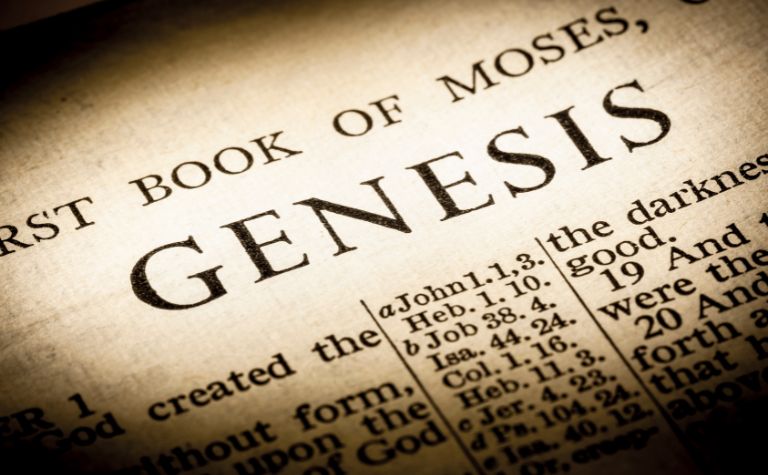The Old Testament, which accounts for two-thirds of the Christian Bible, tells the story of how God used the nation of Israel in his plan to redeem the world from sin. Long after authors penned the 39 books of the Old Testament, readers started organizing their content into chapters for easy reading and accessibility.
The Old Testament contains 929 chapters, from Genesis to Malachi. The Pentateuch has 187 chapters in five books; the History Books have 249 in 12 books; the Wisdom Literature has 243 in five books; the Major Prophets have 183 in five books; and the Minor Prophets have 69 in 12 books.
What Old Testament book has the most chapters? Which one has the least? What is the longest book in the Pentateuch? Who wrote the most chapters in the Old Testament? What is the shortest book in the Historical section? Why is Lamentations a “Minor Prophet”? Keep reading to learn the answers to these questions and others.
Also, see What Is the Last Book of the Old Testament? to learn more.

Total Chapters in the Pentateuch
The Pentateuch, the first five books of the Bible, also called the Law, has 187 chapters. Genesis has 50 chapters, the most of any book in the section. It tells of the origin of the universe and sin (Ch. 1-11) and the beginning of the Hebrews or Israelites (Ch. 12-50).
Moses, the author of the Pentateuch, is the main character (other than God) in Exodus, Leviticus, Numbers, and Deuteronomy. This means he wrote 187 chapters (not to mention Psalm 90), the most of anyone in the Bible.
At the beginning of Exodus, Israel isn’t in the Promised Land but enslaved in Egypt. At the end of Deuteronomy, they are on the edge of the Promised Land.
| Pentateuch | 187 Chapters |
|---|---|
| Genesis | 50 chapters |
| Exodus | 40 chapters |
| Leviticus | 27 chapters |
| Numbers | 36 chapters |
| Deuteronomy | 34 chapters |
Who divided the Bible into chapters?
Since the early centuries of Christianity, church leaders and Bible readers have attempted to arrange the Bible into chapters and verses. Since the Bible is a large book, some people have tried to reduce paper and font size to save materials and make it easier to carry or transport.
If the Bible didn’t have a chapter and verse system, it would be more challenging to cite it and access sections of it for study. As a result, many people tried to devise a helpful method, but their attempts failed. Some were too complex. Others didn’t have the authority to implement their system in churches.
Stephen Langton (1150-1228 A.D.) was a Cardinal in the Roman Catholic Church. He created a system of chapters and verses that many people found helpful. He was also able to implement his system in Bible since he was a Cardinal in the Catholic church. It’s Langton’s divisions that appear in modern Bibles today.
Also, see What Language Was the Old Testament Written In? to learn more.

Total Chapters in the History Books
The so-called Historical section of the Old Testament starts with Joshua and ends with Esther. The traditional label of this section, “History,” doesn’t imply that books outside it aren’t historical. Instead, it means that the books in this section belong to the genre or writing style associated with ancient history.
| History Books | 249 Chapters |
|---|---|
| Joshua | 24 chapters |
| Judges | 21 chapters |
| Ruth | 4 chapters |
| 1 Samuel | 31 chapters |
| 2 Samuel | 24 chapters |
| 1 Kings | 22 chapters |
| 2 Kings | 25 chapters |
| 1 Chronicles | 29 chapters |
| 2 Chronicles | 36 chapters |
| Ezra | 10 chapters |
| Nehemiah | 13 chapters |
| Esther | 10 chapters |
The time of taking the land has 24 chapters devoted to it (Joshua). The time of judges has 25 (Judges and Ruth). The time of the monarchy in Israel has 167 (1 Samuel-2 Chronicles). Finally, Israel’s return from exile has 33 chapters (Ezra-Esther).
Total Chapters in the Wisdom Literature
The Wisdom Literature, also called Poetic Literature, in the Old Testament, consists of five books. Psalms has the most chapters in the section and among all books of the Bible, with 150. The traditional view is that Solomon wrote Proverbs, Ecclesiastes, and Song of Solomon, meaning he wrote 51 chapters in total.
| Wisdom Literature | 243 Chapters |
|---|---|
| Job | 42 chapters |
| Psalms | 150 chapters |
| Proverbs | 31 chapters |
| Ecclesiastes | 12 chapters |
| Song of Solomon | 8 chapters |
Also, see What Language Was the New Testament Written In? to learn more.

Total Chapters in the Prophetic Literature
The Prophetic Literature in the Old Testament contains the most chapters in any section (252). The first five books in the section are traditionally called “Major Prophets,” and the remaining 12 are called “Minor Prophets.” These labels don’t refer to the content of the books, only their size.
| Prophetic Literature (Major) | 183 Chapters |
|---|---|
| Isaiah | 66 chapters |
| Jeremiah | 52 chapters |
| Lamentations | 5 chapters |
| Ezekiel | 48 chapters |
| Daniel | 12 chapters |
Readers can see that the Book of Lamentations is considered a “Major” prophet, though it has five chapters, while four “Minor” prophets have more chapters (Hosea, Amos, Micah, and Zechariah). One has the same amount (Malachi). Lamentations is in the first section because Jeremiah is its author, so it’s traditionally placed after his largest book.
| Prophetic Literature | 69 Chapters |
|---|---|
| Hosea | 14 chapters |
| Joel | 4 chapters |
| Amos | 9 chapters |
| Obadiah | 1 chapter |
| Jonah | 4 chapters |
| Micah | 7 chapters |
| Nahum | 3 chapters |
| Habakkuk | 3 chapters |
| Zephaniah | 3 chapters |
| Haggai | 2 chapters |
| Zechariah | 14 chapters |
| Malachi | 5 chapters |
Obadiah is the shortest book in the Old Testament, with one chapter. Four New Testament books have one chapter: Philemon, 2 and 3 John, and Jude.
Did God inspire the chapter divisions?
God inspired the authors of the Bible through the Holy Spirit to write exactly what he wanted. 2 Timothy 3:16-17 read, “All Scripture is inspired by God and profitable for teaching, for reproof, for correction, for training in righteousness” (NASB; cf. 2 Pet. 1:21).
Christian theologians and Bible scholars don’t believe that God inspired chapters and verse divisions. While they are helpful in Bible study, they aren’t considered “Scripture” in a theological sense.
Also, see Who Wrote the New Testament? to learn more.
References:
[1] ESV Study Bible
[2] NIV Study Bible
Related Questions
The New Testament is the most significant collection of writings in world history. Each gospel, letter, historical account, and sermon describe the life and ministry of Jesus of Nazareth and the...
Regular Bible reading is a valuable habit, as Scripture is God's message to people. However, the Bible's 66 distinct books, featuring various authors, settings, and themes, can make it challenging...
